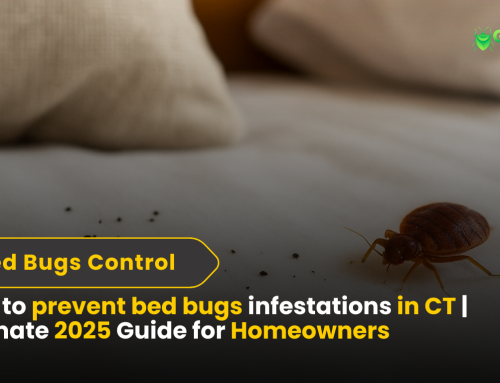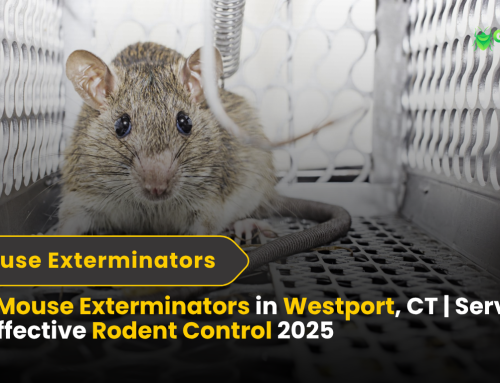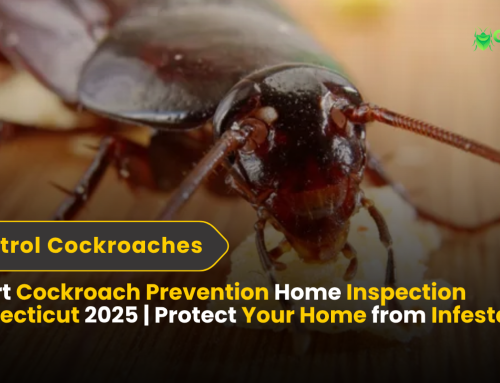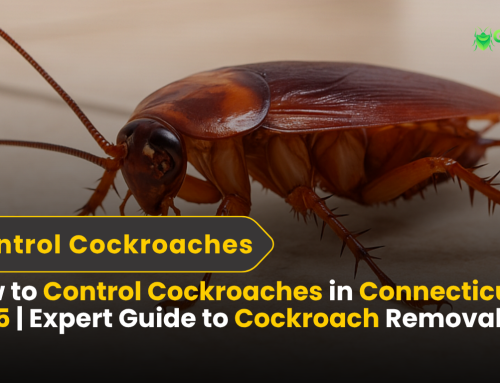How to Keep Wasps Away From Your House | 2025 Prevention Tips
Wasps can turn your peaceful backyard into a stressful zone in just minutes. Their stings are painful, and in some cases, they can trigger dangerous allergic reactions. If you’ve ever had wasps hovering around your food, near your kids, or building nests under your roof, you know how uncomfortable it feels. That’s why more and more people are searching for how to keep wasps away from your house in 2025. The good news is, with the right prevention strategies, you can make your home far less attractive to these pests.
Preventing wasps is easier than removing them once they’ve built a nest. By combining natural repellents, proper home maintenance, and smart prevention tactics, you can protect your home and garden without relying heavily on harsh chemicals. In this guide, you’ll find practical, expert-approved methods to prevent wasps — from natural remedies to professional help when needed.
Why Wasps Are Attracted to Your Home
Understanding why wasps come near your house is the first step to keeping them away. These insects are resource-driven and look for three main things: food, shelter, and water.
- Food sources: Wasps love sugary foods and protein. If you’ve ever left soda cans, ripe fruit, or leftover meat outside, you’ve probably noticed wasps arriving quickly. Even small crumbs on your patio can attract them.
- Shelter: They look for safe, dry, and hidden spaces to build nests. Common nesting spots include under eaves, inside attics, wall voids, and sheds. Cracks or holes in your home’s exterior give them easy access.
- Water: Wasps also need hydration. Bird baths, clogged gutters, pet bowls, or even leaky pipes can provide them with consistent water sources.
Eliminating or managing these attractants reduces your risk significantly. According to the EPA, removing access to food and water is one of the most effective natural pest control methods.
Natural Remedies to Keep Wasps Away
If you prefer eco-friendly solutions, natural remedies can help deter wasps without harming them or the environment. These remedies are safe for families and pets while being effective at keeping pests at bay.
- Peppermint oil spray: Wasps dislike peppermint. Mix 10 drops of peppermint essential oil with a cup of water and spray around windows, doors, and common entry points.
- Vinegar and water mix: A solution of vinegar and water can act as a deterrent. Spray it in areas where wasps might build nests.
- Plants that repel wasps: Certain plants naturally discourage wasps, including lavender, citronella, wormwood, and eucalyptus. Planting them around your garden creates a natural shield.
- Soap and water solution: A simple mix of dish soap and water can break down a wasp’s exoskeleton if sprayed directly, but it’s more often used as a mild deterrent around outdoor eating areas.
Case Example: A family in Texas reported reducing wasp activity around their home by 60% after planting lavender and peppermint near outdoor seating areas. Combining natural scents with sealed trash bins made a noticeable difference.
DIY Prevention Tips for Homeowners
If you want to truly master how to keep wasps away from your house, then prevention is key. Small adjustments in your home and garden routine can drastically reduce wasp visits.
Wasp Prevention Checklist for Homeowners:
- Seal entry points: Inspect your home for cracks in walls, windows, and vents. Sealing them prevents wasps from finding shelter. Use caulk or mesh screens for extra protection.
- Cover outdoor trash bins: Always keep lids tightly closed. Wasps are drawn to food scraps and sweet residues inside bins.
- Maintain your yard: Overgrown hedges and unused wood piles provide nesting spaces. Trim vegetation and remove clutter regularly.
- Clean after outdoor meals: Barbecues and picnics leave behind food residue that attracts wasps. Wipe tables, clean grills, and store leftovers quickly.
- Install mesh screens: Placing screens on vents and windows allows airflow while blocking insects.
Why it works: By removing food, water, and nesting opportunities, you’re making your house unappealing to wasps. Think of it as pest-proofing your space before they even arrive.
Are Wasps Dangerous? Health Risks You Should Know
Many people ask whether wasps are truly dangerous or just an annoyance. The truth is, they can be both. According to Wikipedia, wasp stings are not only painful but can cause severe allergic reactions.
- Stings: A single sting can cause redness, swelling, and sharp pain that lasts hours.
- Allergic reactions: For some, stings can trigger anaphylaxis, a life-threatening condition that requires immediate medical attention.
- Multiple stings: If attacked by a swarm, stings can cause dizziness, nausea, and difficulty breathing.
Children and pets are especially vulnerable because they spend more time outdoors and may not recognize the risk. That’s why knowing how to keep wasps away from your house is also about protecting your loved ones’ health.
Best Wasp-Repelling Plants for Your Garden in 2025
Gardens are a hotspot for wasp activity. Luckily, you can use plants that naturally deter them. These plants serve a dual purpose: beautifying your space while keeping pests at bay.
|
Plant Name |
Effectiveness (1–5) |
Extra Benefit |
|
Peppermint |
5 |
Repels ants and spiders too |
|
Citronella |
4 |
Keeps mosquitoes away |
|
Lavender |
4 |
Adds fragrance and color |
|
Wormwood |
3 |
Hardy, low maintenance plant |
|
Eucalyptus |
5 |
Repels multiple insect species |
Planting a combination of these around seating areas, patios, and entry points creates a strong barrier. This eco-friendly approach is sustainable and works year-round.
When to Call a Professional Pest Control Service
While prevention and natural remedies work well, sometimes professional help is necessary. You should call an expert if:
- You see multiple nests around your property.
- Wasps are entering your living areas.
- Family members are allergic to stings.
- DIY methods haven’t reduced wasp activity.
Professional pest control providers use safe and effective methods for removing nests and preventing re-infestation. They also have protective gear to minimize risk. If you’re searching for reliable pest control services in your area, check out our contact page to get expert help quickly.
Frequently Asked Questions About Wasp Prevention
What smell keeps wasps away?
Wasps strongly dislike peppermint, eucalyptus, and citronella. Using sprays or planting these around your home creates a natural deterrent.
How do you deter wasps without killing them?
Seal food sources, cover trash bins, and use natural repellents. This keeps them away without harming them.
What should I do if I find a wasp nest near my house?
Do not attempt to remove it yourself without protective gear. Contact a licensed pest control provider to handle it safely.
Are wasps good for the environment?
Yes. Wasps play a role in controlling other insect populations. However, their presence near homes can pose risks, so prevention is essential.
Do dryer sheets or coffee grounds repel wasps?
Some homeowners report success with strong scents like dryer sheets or burning coffee grounds, but these are temporary fixes compared to long-term prevention methods.
Conclusion: How to Keep Wasps Away in 2025
Now you know exactly How to Keep Wasps Awayaway from your house from sealing entry points and planting natural repellents to knowing when to call in professionals. Prevention is always easier, safer, and more cost-effective than removal after an infestation begins.
By applying these prevention tips, you can enjoy a safe backyard, protect your children and pets, and relax without worrying about stings.
If wasps are already a problem, don’t wait — contact us today for fast, eco-friendly, and professional pest control services. Let’s make your home a wasp-free zone in 2025.










